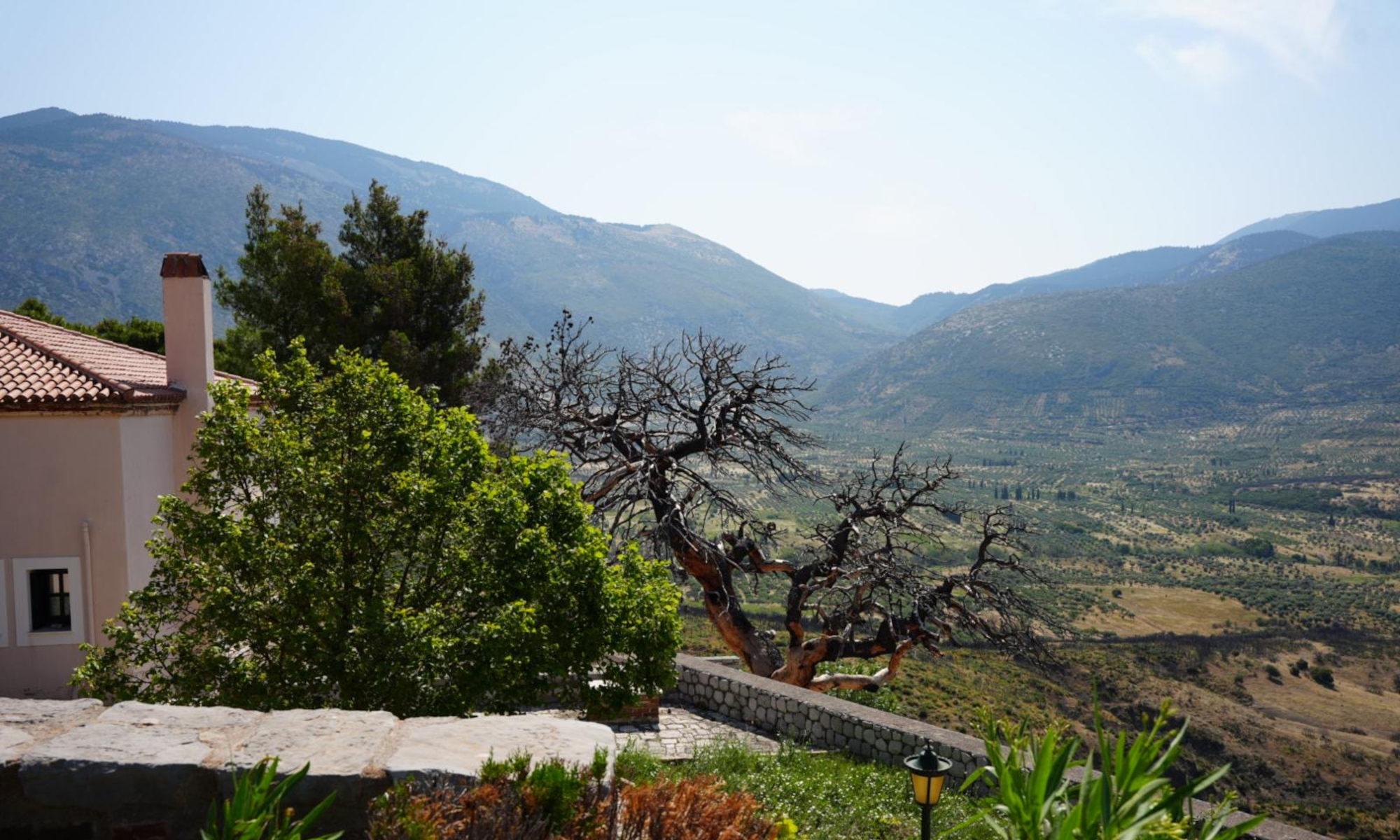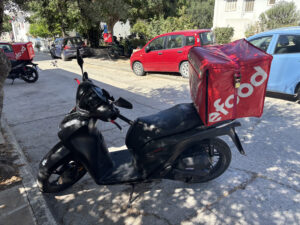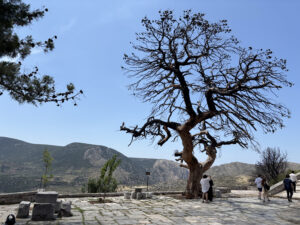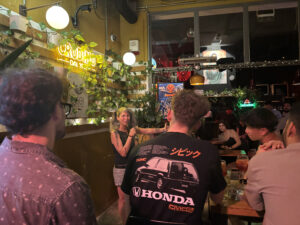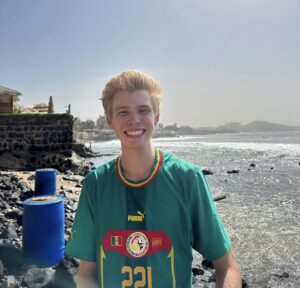Yasaman Heidarpour hadn’t spoken to her parents in two years. When Israel struck Tehran, she feared she never would again.
By Noah LaBelle
The night of Thursday, June 13th, Yasaman Heidarpour was fast asleep in her Athens apartment when her husband shook her awake. Israeli bombs had struck Tehran, the city they fled nearly a decade ago. She immediately grabbed her phone. Her father’s number, which she knew by heart, wasn’t working. On Instagram, she sent messages to her parents, cousins, high school friends. None delivered; Iran was already experiencing an internet blackout that, days later, the government extended nationwide. “It’s only me and my husband here in Greece,” Heidarpour told me recently. “Everyone is back in Iran, and I couldn’t find anybody.”
After twelve days of conflict—which killed 610 Iranians and injured 4,746 more—Israel and Iran agreed to a ceasefire on June 24th. The next day, while working at the Melissa Network, an Athens-based organization supporting migrant women, Heidarpour noticed her messages had gone through. Her father replied at once: all was well, the internet was back, and if she had time, they could talk.
Heidarpour, who is thirty-one, hadn’t spoken with her parents in two years. Still, she called straight after work. Once on the line, her parents downplayed everything, saying the airstrikes were nothing serious. Their faces, visibly frightened, told another story—“like they were ten years older,” Heidarpour said. When she asked more questions, her father insisted there was no need, steering the conversation to daily life.
The call brought back complex emotions of what she’d left behind. “I felt really relieved that they are well,” Heidarpour told me, “but still, everything is the same.” As her parents spoke, past memories of never having the right to complain or talk resurfaced.
***
When she was ten, Heidarpour tried to tell her mother about a man who had harassed her on the streets of Tehran. Before she finished, her mother slapped her: “You don’t say it to anybody—not even to me.” After that, she stopped talking about her feelings. “I was not even saying that I was hungry,” she told me.
Nine years later, her life changed rapidly. At a wedding, while studying accounting at university, she met her future husband, a second-cousin whose family had been estranged with hers for eight years. She quickly learned why. His father, brothers, and one of his sisters were members of the Islamic Revolutionary Guard Corps, or Sepah, a force tied to militant groups fighting Western and Israeli influence. Her husband had refused to join for years, but the pressure escalated.
“When we got married, they had another option to threaten,” Heidarpour said, referring to herself. “They were threatening us with death.” In December of 2015, it took Heidarpour and her husband just a day to stuff necessities into a backpack and leave. They had no plan beyond Turkey, but found a smuggler who could get them to Greece.
The sea was frigid in Çeşme, at Turkey’s westernmost end. Four plastic fishing rafts rocked in the surf. Women and children, babies among them, were told to get in first. If there wasn’t space, the men would sit on the edges. Looking back for her husband, Heidarpour saw the smugglers holding guns and knives. Over all the crying and shouting, they growled that there was no choice: “You sit inside the boat, or you die.” When seventy people had been crammed into each, the boats set off, and were soon separated. Water rushed through a hole in hers. As the boat began to sink, she blacked out.
She came to under a large tent. Her husband told her they’d reached Chios, a Greek island seventeen kilometers from the Turkish coast. Only their boat had made it.
They reached Athens aboard a humanitarian vessel the next night, where they landed in Eleonas, a camp already packed with over a thousand refugees. “The first thing I did,” Heidarpour said, “I just removed the scarf, and then said, ‘Okay, here I am, and I’m safe.’” They lived there, calamitously, for more than a year, until a chance encounter with an Afghan woman led Heidarpour to the Melissa Network in November of 2017. Heidarpour, who studied English for fifteen years in Turkey, had arrived just as Melissa’s lone Farsi translator went on maternity leave. She landed the gig that January.
***
What saved Heidarpour during the phone call with her parents was her two daughters, three and five, grabbing the phone. Besides calling to update her parents about their grandchildren two years ago, she kept her distance before the strikes, and hasn’t contacted her parents since. “I have more peace with myself when I’m not in communication with them,” she told me. “Otherwise, I don’t know if I will be such a good mother.”
On a recent morning, her youngest was trailing her oldest around the house, per usual. The five-year-old had had enough. She turned around and begged for just five minutes of privacy.
“My daughter already started saying her needs and thoughts and feelings,” Heidarpour said. “You cannot imagine how happy I was.” She had just finished describing her own childhood—robotic, she called it, lived exactly as programmed by her father.
“I was like, Okay, I think you’re doing well, Yasaman.” ♦
